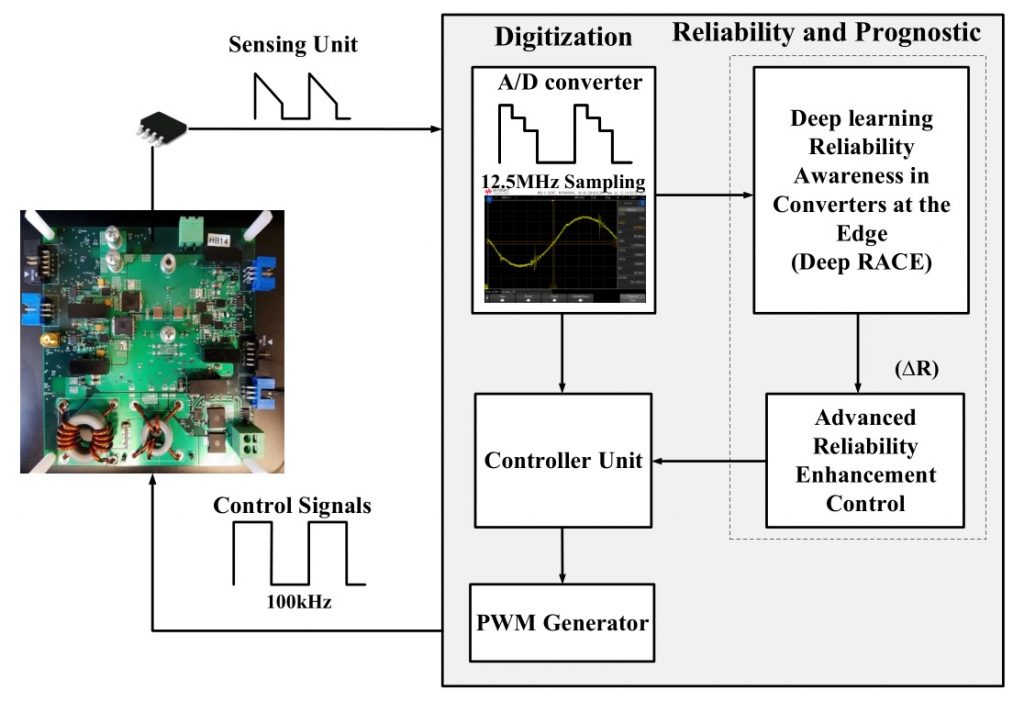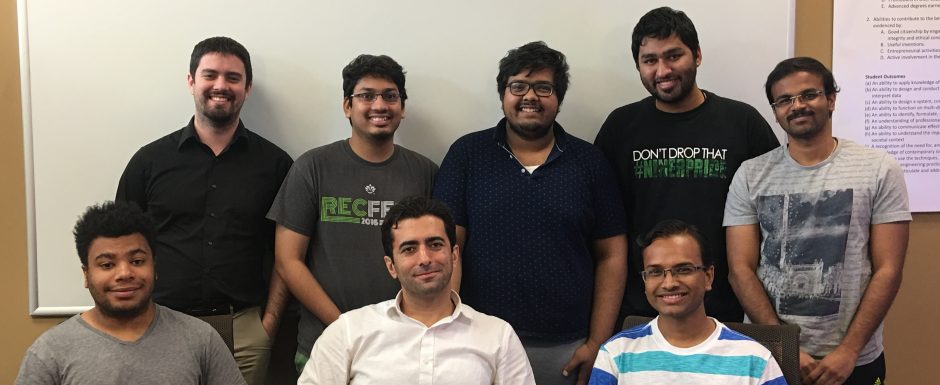This project proposes a transformative solution for scalable understanding, modeling and predicting the behavior of emerging Wide Band Gap (WBG) semiconductor switches, in particular GaN-based power supplies. This research is a joint collaboration with Dr. Babak Parkhideh (Department of Electrical and Computer Engineering, UNC Charlotte). Our aim is to offer a holistic information processing system, comprising algorithm advances, architecture and hardware innovation, as well as full system integration (from the cloud down to the edge node). It creates a near real-time reliability awareness and enables “Predictive Maintenance” of WBG switches, in high-frequency power converters. The result will be highly advanced sensors and data processing units to measure and process the characteristics of emerging semiconductor devices at very high frequency/ resolution empowered by cutting-edge computing technology for Just-In-Time (JIT) behavioral modeling and decision making. Through a tightly-coupled integrative research collaboration, this project will co-design and co-create an advanced real-time reliability measurement and predictive maintenance system, from the sensor to the edge and up to the cloud, to pave the path for massive deployment of emerging semiconductor devices to the real world.

Since it is expected transistor power converters will be used in 80% of applications by the end of 2030, we found that reliable operation of the power converters will be more highlighted in emerging technologies and applications. Based on our research, controllable power semiconductor (e.g., IGBT and MOSFET) devices play the most dominant role in the switching power applications. However, operating at high current and voltage create an extreme stress on the power devices. During our studies, we realized power semiconductor devices are responsible for at least more than 30% of the failure. Because of the need for having reliable power converters, we studied different proposed and used different diagnostic and prognostics techniques to address the reliability issues of a complex system process; however, we found that the applied techniques (i.e., such as Kalman filter and Bayesian calibration) used classical first order models, and their accuracies are limited and cannot be adaptive with long-term changes. Moreover, we found that it is hard to understand the degradation physics for advanced power electronics due to the system sophistication and complex.
Since we found that many unknown device factors make it hard for classical approaches to model the power device reliability and resiliency, we developed a solution based on cloud-edge platform and deep Recurrent Neural Networks (RNN). During our studies, we found out that the power transistor degradation models are intrinsically a time-series problem, therefore, we developed our method based on one of the prominent versions of RNN named LSTM. To our best knowledge, no prior work has been published to present active reliability assessment of the power converters based on deep learning algorithm in a real-time fashion. We developed an infrastructure for device health monitoring for condition-based prognostics and adaptive calibration over the time.




